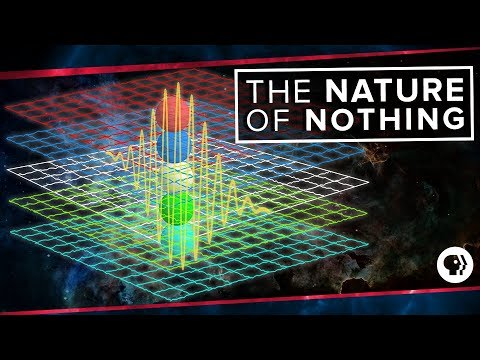If one will forgive my odd attempt at humour in my title, this video, although geared at young adults, has some very interesting things to say about “emptiness”, although not necessarily from a ‘Buddhist’ perspective:
If this has already been linked here, my apologies.
1 Like
This kind of reminds me of scale relativity, a theory that is meant to reconcile Einstein’s relativity and quantum mechanics. Laurent Nottale came up with it, and one aspect of the theory is that everything is intrinsically empty.
In relation to the above title, a Trailokyadhātu Śūnyatā Śāstra “for the scientific materialists” I am tempted to wonder, should this be from the scientific materialists or for the scientific materialists.
As a Buddhist, that these theories point towards Buddhism as revealing larger observable and objective truths about the world seems evident, but I am quite sure (in fact, know,) that this feeling is pan-religious in nature. Muslims, for instance (and arbitrarily chosen), also feel that their traditional beliefs are just as validated by new scientific discoveries born of the spirit of inquiry into the world. That being said, the above has some uncanny resemblances.
Furthermore, should this be a pseudo-śāstra of sorts from the scientific materialists, I do not think we should view this as lessening or attacking Buddhism. Buddhism has always learned to adapt to new circumstances, and those adaptions have not always led to the confusions and disappearing of the Buddhism before.
2 Likes
Regardless, it is all super interesting and so fun to learn. Until I reach nibbana, this sort of stuff will certainly hold me over 
I agree though, every religion takes every new discovery as more evidence of their own theories. Confirmation bias to the max. And because theories are always changing, and sometimes totally wrong, if there is no way to intergrate it into their ideas, they just dismiss it as a mistake. What needs to be constantly considered, is a balance of probability, what aspects are most likely to be true or false. Buddhism is unique in that it is far more fluid than other religions and deals mostly (if not entirely) with experiential truths and circumstance, and so it is able to form and flow around new scientific discoveries. Even the science of psychology and neurochemistry, which deals more with quantifying experience, has (in my mind at least) continuously stepped in the footprints of buddhist philosophy. I was once speaking to a christian who was explaining their recent crisis of faith, and they told me that learning quantum physics “saved” them because it proved to them that there is a way jesus could have performed miracles, by controlling quantum mechanics! I think this is a step too far. And buddhism should not make the same mistake. We know how intelligent, revolutionary, and ruthlessly logical the buddha was, so if science bumps up against his teachings in a way that seems irreconcilable, we need not dismiss or re-form the science to fit our needs, nor do we need to dismiss any teachings of the buddha; instead, I would recommend trusting in the buddha’s obvious intellectual and spiritual prowess, and taking another look at the way we are interpreting it. I would argue that more often than not, any discrepancies between science and buddhism is not a mistake from either side, but merely a misinterpretation.
1 Like

